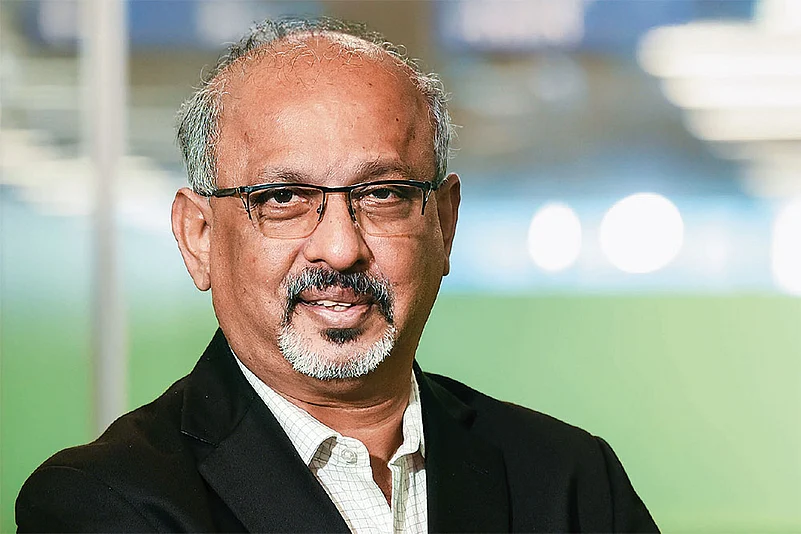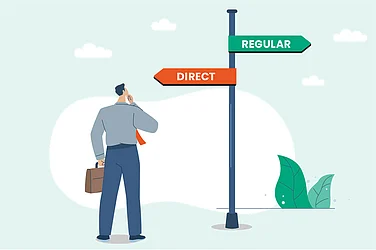Can you tell us about your first job and how much was your first pay cheque?
I completed my MBA from the Institute of Management, Development and Research (IMDR), Pune, graduating in the 1988-1990 batch. Back then, landing a job at a top company felt like winning the jackpot—and I was lucky enough to receive an offer from Eicher Motors, a premier company. My posting was in the Indore division.
My first salary was Rs 3,450, which was quite a handsome sum then after providing for accommodation.
Was it enough for your needs back then?
Yes, it was enough for me from the point of view of enjoying life at the time. I was a bachelor, so I used to travel a lot with my friends on our two-wheelers, go to restaurants, and enjoy good food without having to worry about bills. But when it came to long-term planning, the answer was no. It allowed me to live well month to month, but it wasn’t sufficient for serious financial planning or investments.
Do you remember doing anything special with your first pay cheque?
I did two things for myself. First, I bought something for my three elder sisters. It wasn’t anything of great value—more of a gesture of appreciation. Second, I gave myself a big party with my friends. We went to a nice restaurant, enjoyed good food, and just celebrated the milestone of my first pay cheque. It was a special moment, something I might not have been able to do otherwise, and it made that first salary truly memorable. I wanted to celebrate the first pay cheque.
Do you have any regrets about how you should have spent your first pay cheque? Any advice to your younger self?
I don’t regret it, because regret is a strong word. At that point in time, I think it was the right thing to do. Looking back, of course, things could have been different. Today, we have so much financial guidance—people educate you to start a systematic investment plan (SIP) or save right from your first job. Had someone guided me back then, I think I would have been much better off financially.
Unfortunately, during the first 10 years, there was hardly anyone to educate us properly about investments and long-term planning. So, yes, in hindsight, things could have been better. But I don’t regret how I spent my first pay cheque—it was the right decision at that time.
Is there any story or experience that reminds you of your first pay cheque?
There isn’t really a story, except that I celebrated with my friends in a way I couldn’t have without earning my own money.
Do you think earning your own money changed your worldview about how you spend and save? Could you elaborate?
My perspective on money actually changed much later, when I joined the financial services industry. Until then, money was mostly about immediate needs—planning my next holiday, getting married, moving into my own house, or paying rent. It was all consumed for personal use.
The change began after I moved to the financial services industry and understood how this can help in the long term. Until 1996, the first six years of my career, apart from buying one insurance policy, and a few fixed deposits (FDs), I hadn’t done much in terms of investments.
If I were allowed to go back 30 years, the one thing I would tell my younger self is to be a disciplined investor. The idea of ‘start early’ only came after 2004-05
How would you define your relationship with money then and now?
If I were allowed to go back 30 years, the one thing I would tell my younger self is to be a disciplined investor. Nobody taught us this. The idea of “start early” really came only after 2004-05, when people began showing charts of how 30 years of investing could grow wealth. Unfortunately, nobody told me that when I was young. Our relationship with money has changed, too. Earlier, people said, “I don’t have extra money to invest.” But investment doesn’t always need extra money. It’s about where you deploy your existing money—whether it’s in a savings account, FDs, Public Provident Fund (PPF), or elsewhere. If you shift it to a product with similar risk, but higher returns, that itself is investment.
Almost every advisor says one should start saving as soon as you get your first salary. What is your take on this?
The challenge is that lifestyle expenses today are much higher. You can’t tell a youngster to sacrifice everything now for later—they won’t accept that. Instead, we tell them: enjoy life, but also start saving. Even a small SIP is a good beginning.
What is the best way to talk about investments with today’s youth?
The way we communicate with the new generation has to be different. You can’t lecture them for 40 minutes—you need to deliver the message in 4 minutes. They are intelligent, sharp, and do their own research on Google and ChatGPT. They don’t just accept advice; they validate it. So, we link investment to their aspirations—like a bucket list trip or skydiving adventure—and show them how planning makes those dreams possible.
Do you have any advice how young professionals should spend their first pay cheque?
Don’t rely only on online information. Don’t just ask ChatGPT or Google and stop there. Do deeper reading, cross-check with multiple sources, and most importantly, consult qualified professionals. Investments cannot be done on the fly—you need intrinsic knowledge and proper guidance. That is the big message I want to leave with young investors.
kundan@outlookindia.com













